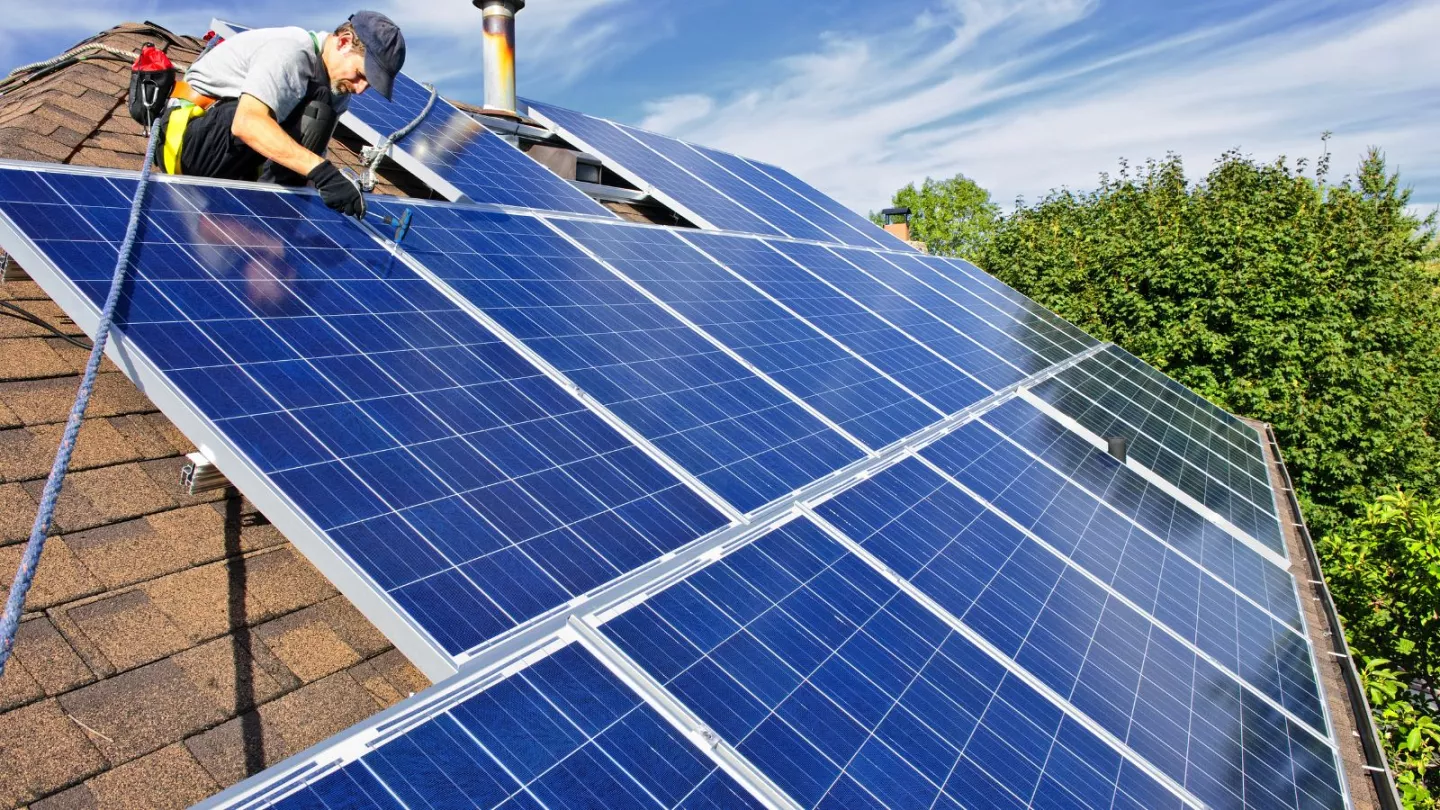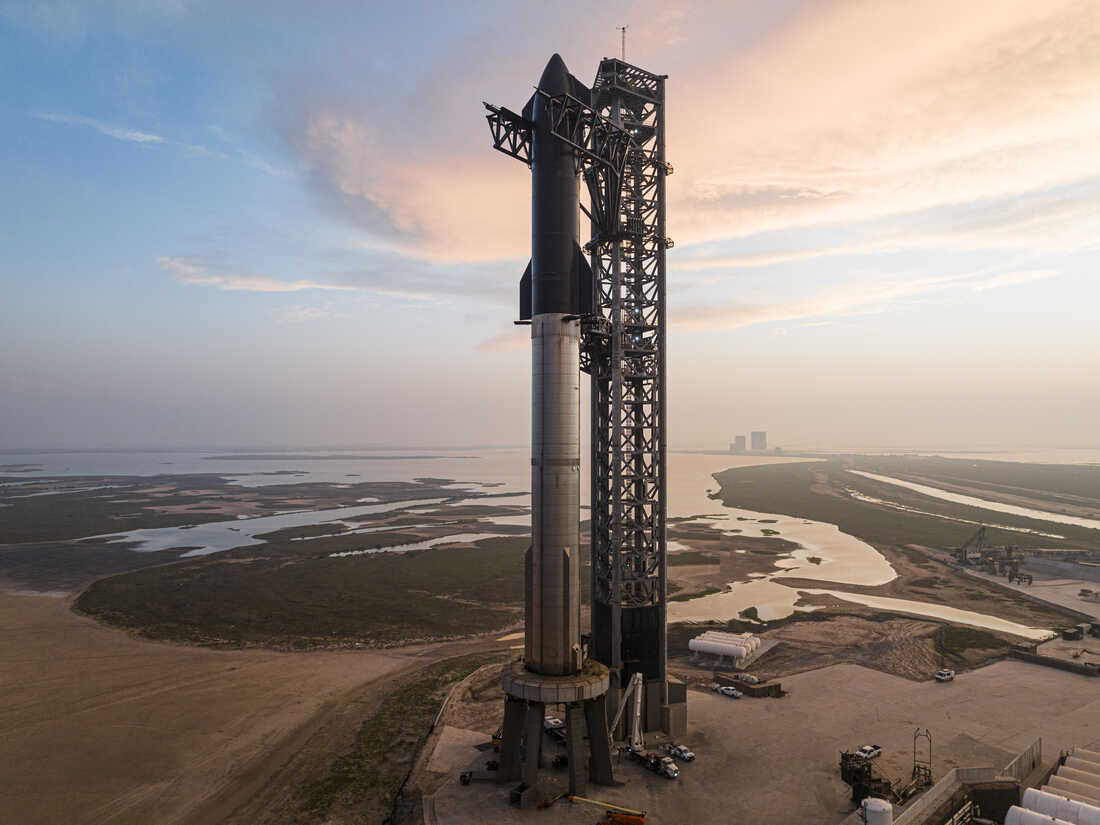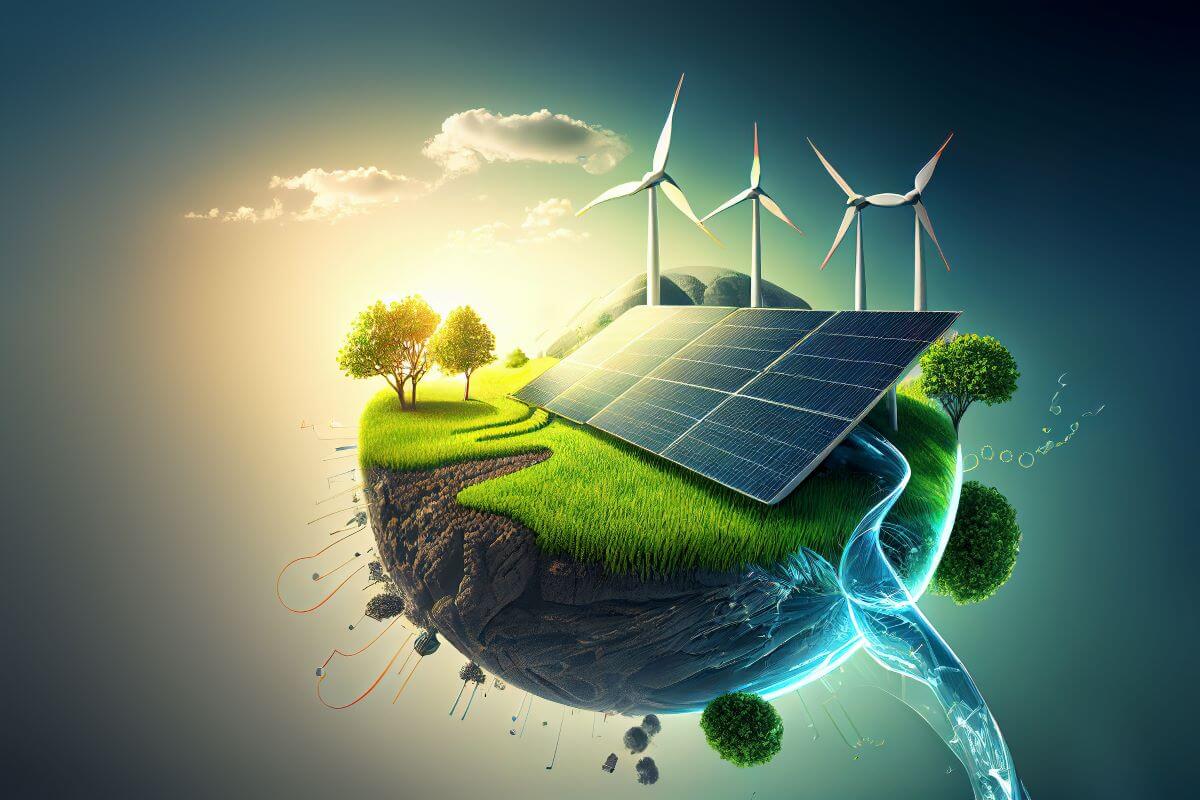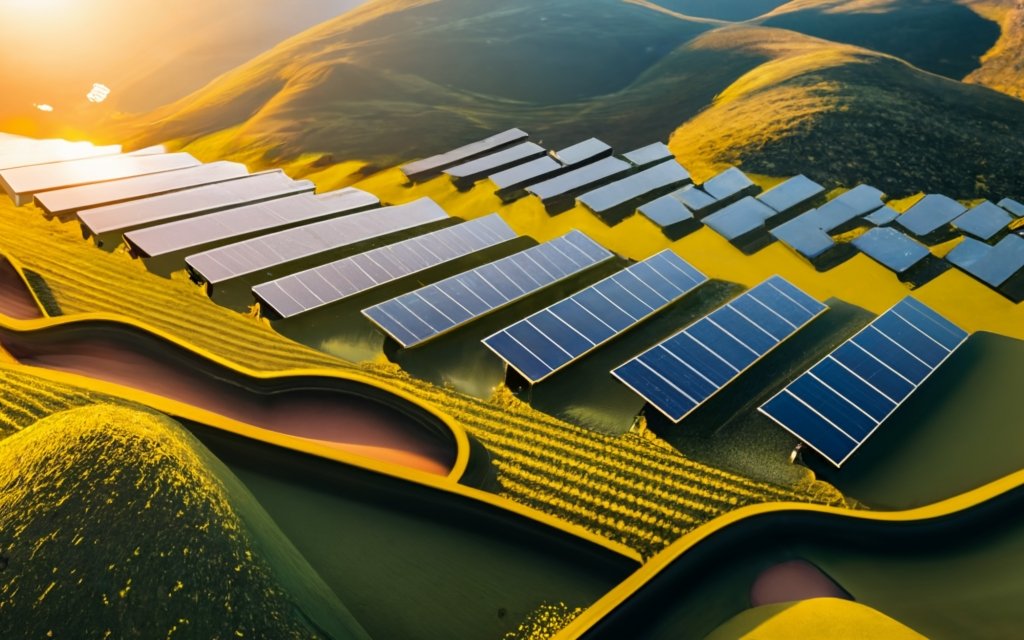Solar Power Maintenance Tips to Keep Your Energy System Shining

Understanding Solar Power Systems
Before delving into solar power maintenance, we should first go over a solar power system’s components and functionality. If you already know all of this, feel free to skip to the section on maintenance.
Unlike fossil fuels like oil, coal, and natural gas, solar power systems offer sustainable, renewable energy that harnesses the sun’s power to generate electricity. These systems are made up of different components that work to convert sunlight into usable energy for homes, businesses, and even entire communities (aka community solar).
What Are the Components of a Solar Power System?
Whether you have a small system or a whole-house solar system, most have three main components: solar panels, inverters, and optional batteries.
Solar panels capture sunlight and convert it into direct-current (DC) electricity. These panels include photovoltaic (PV) cells that absorb photons from the sunlight. The photons excite the electrons within the PV cells, creating DC electricity.
Solar inverters are what make this power compatible with your home. Your home cannot use DC power, as it requires alternating current (AC). It’s these inverters that convert DC into AC electricity.
Solar batteries are optional but can also be highly useful in reducing reliance on the electric grid. These batteries let you store the excess energy your solar energy system generates during peak sunlight hours. You can tap into this stored electricity when the sun sets or during overcast days. They also work great as battery backup during power outages or blackouts and can even allow you to live off-grid, meaning you don’t connect to the power grid at all.
Beyond these main components, solar power systems may also include monitoring systems to track system performance and identify any potential issues that arise, such as under-producing panels or inverter errors.
How Do Solar Power Systems Work?
When sunlight hits the solar panels, the sunlight’s photons dislodge the electrons from the silicon atoms in the panels. This dislodging creates a DC electrical current. The DC flows to the inverter or inverters to convert it to AC power, which makes it suitable for household and business consumption.
Any excess electricity you don’t use can be rerouted to a battery storage system or back to the electric grid. If you opt for the latter and have a net-metering setup with your power company, you can earn credits toward your bill or a periodic payout.
Why Is Regular Solar Power Maintenance Important?
As with most things in life (from your health to your appliances), regular maintenance of your solar panels is crucial to optimize efficiency and lifespan. Through proper maintenance practices, you’ll help your panels perform their best and identify issues before they become major problems.
Enhances Efficiency
Dirt, dust, and other debris can build up on the solar panel surfaces, obstructing sunlight and reducing their efficiency. Regular cleaning of the panels, which you can do with water and a soft brush or sponge, removes these contaminants and restores optimal solar energy production.
In addition to cleaning, it’s important to monitor the overall system performance. You can do this through the system monitoring app or software provided by the manufacturer or installer. When you track the system’s power output and compare it to its expected performance, you’ll uncover notable output drops that may be signs of other issues that need further investigation.
Solar panel angle can also impact efficiency. Your installer can adjust and optimize the panels’ tilt angle to maximize sunlight exposure. Over time, the panels can move a bit and need adjusting. To ensure optimal angle, have the installer come out periodically to check and adjust the angles. Alternatively, the installer can add an adjustable mounting system that allows you to change the tilt angle as needed.
Generally, you want to adjust the angle four to five times per year, but this will depend on many variables. It’s best to consult your solar panel installation company and get its recommendation based on your panel setup.
Prolongs Lifespan
Solar panel maintenance can also significantly extend its lifespan. Keeping the panels clean reduces the risk of damage from environmental elements, which lessens their vulnerability to corrosion and color fading.
Inspections are another key part of solar power maintenance. This helps identify small issues early on — such as loose connections, damaged cables, or faulty components — to keep them from becoming serious problems that can lead to larger issues or even solar energy system failure.
In areas prone to extreme weather conditions, PV system inspections after storms or heavy winds are especially important. Physical solar panel damage, such as cracks or shattered glass, needs immediate repairs to avoid further impact on the system’s overall performance.
Regular inspections also allow you to take advantage of technological advancements. During the visual inspection, the solar company may notice outdated components and other upgrade opportunities to enhance system efficiency, potentially saving you on your electricity bill and future maintenance costs.
You should have these professional inspections done once every two years or earlier if you notice performance drops.
What Are Some Basic Solar Power Maintenance Tips?
While certain solar panel maintenance procedures require a professional’s touch and experience, you can take several steps to keep your solar power system in top shape.
Clean Your Solar Panels Twice a Year
The general rule is you want to clean your solar panels twice a year. Doing this is a simple and effective way to maintain their efficiency without calling out a professional.
Before cleaning your solar panels, check the manufacturer’s cleaning guidelines, as using the wrong materials and chemicals can damage the panels. Generally, solar panels need just a gentle rinse with water and a soft brush or sponge to wipe away any stuck-on debris.
When cleaning your solar panels, it’s ideal to do so in the early morning or late afternoon. Cleaning solar panels mid-day and under direct sunlight can lead to water spots or streaks that can affect the panels’ efficiency.
The type of cleaning products you use on your solar panels can also affect their lifespan. Harsh chemicals or abrasive materials can damage the protective coating on the panels, leading to lower efficiency and potential long-term damage. Always use mild, non-abrasive cleansers and soft materials to ensure the longevity of your solar panels.
Monitor Your System Performance Regularly
Cleaning isn’t the only maintenance item for your solar panels. You also want to monitor system performance to spot any issues that may arise. Many solar power systems include a monitoring app or software to track energy production and analyze historical data. Some are even advanced enough to monitor each panel individually.
Checking these metrics regularly and comparing them to the expected performance can help you detect any electricity production drops. If you spot a significant decline that continues over several days, you may want to contact a professional to investigate the issue further.
When Should You Hire a Professional for Solar Power Maintenance?
While many folks can handle basic maintenance, some require the expertise of trained professionals. Here’s when it’s wise to call in the professionals.
If you lack experience, are uncomfortable, or aren’t overly handy, you should consult a professional solar power maintenance service. These professionals have the knowledge and specialized equipment to address any issues.
The other time to contact a professional is if you notice a significant, consistent decrease in energy output as this could indicate a system issue. An expert can fully diagnose your solar panel system and recommend appropriate solutions. They can also help determine if any issues are covered under the solar panel manufacturer or workmanship warranty.




Leave a Reply